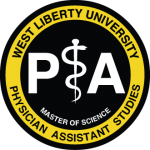 The American Association of Physician Assistants has revised its physician assistant code of ethics several times since the profession began. Although the fundamental principles underlying the ethical care of patients have not changed, the societal framework in which those principles are applied has. Economic pressures of the health care system, social pressures of church and state, technological advances, and changing patient demographics continually transform the landscape in which PAs practice.
The American Association of Physician Assistants has revised its physician assistant code of ethics several times since the profession began. Although the fundamental principles underlying the ethical care of patients have not changed, the societal framework in which those principles are applied has. Economic pressures of the health care system, social pressures of church and state, technological advances, and changing patient demographics continually transform the landscape in which PAs practice.
Previous physician assistant code of ethics for the profession were brief lists of tenets for PAs to live by in their professional lives. This document departs from that format by attempting to describe ways in which those tenets apply. Each situation is unique. Individual PAs must use their best judgment in a given situation while considering the preferences of the patient and the supervising physician, clinical information, ethical concepts, and legal obligations.
Four main bioethical principles broadly guided the development of these guidelines: autonomy, beneficence, nonmaleficence, and justice.
Autonomy, strictly speaking, means self-rule. Patients have the right to make autonomous decisions and choices, and physician assistants should respect these decisions and choices.
Beneficence means that PAs should act in the patient’s best interest. In certain cases, respecting the patient’s autonomy and acting in their best interests may be difficult to balance.
Nonmaleficence means to do no harm, to impose no unnecessary or unacceptable burden upon the patient.
Justice means that patients in similar circumstances should receive similar care. Justice also applies to norms for the fair distribution of resources, risks, and costs.
Physician assistants are expected to behave both legally and morally. They should know and understand the laws governing their practice. Likewise, they should understand the ethical responsibilities of being a health care professional. Legal requirements and ethical expectations will not always be in agreement. Generally speaking, the law describes minimum standards of acceptable behavior, and ethical principles delineate the highest moral standards of behavior.
When faced with an ethical dilemma, PAs may find the guidance they need in this document. If not, they may wish to seek guidance elsewhere—possibly from a supervising physician, the hospital ethics committee, an ethicist, trusted colleagues, or other AAPA policies. PAs should seek legal counsel when they are concerned about the potential legal consequences of their decisions.
The following sections discuss ethical conduct of PAs in their professional interactions with patients, physicians, colleagues, other health professionals, and the public. The “Statement of Values” within this document defines the fundamental values that the PA profession strives to uphold. These values provide the foundation upon which the guidelines rest. The guidelines were written with the understanding that no document can encompass all actual and potential ethical responsibilities, and PAs should not regard them as comprehensive.
The AAPA Statement of Values: A Physician Assistant Code Of Ethics
- Physician assistants hold as their primary responsibility the health, safety, welfare, and
the dignity of all human beings. - Physician assistants uphold the tenets of patient autonomy, beneficence, nonmaleficence,
and justice. - Physician assistants recognize and promote the value of diversity.
- Physician assistants treat equally all persons who seek their care.
- Physician assistants hold in confidence the information shared in the course of practicing
medicine. - Physician assistants assess their personal capabilities and limitations, striving always to
improve their medical practice. - Physician assistants actively seek to expand their knowledge and skills, keeping abreast of
advances in medicine. - Physician assistants work with other members of the health care team to provide
compassionate and effective care of patients. - Physician assistants use their knowledge and experience to contribute to an improved
community. - Physician assistants respect their professional relationship with physicians.
- Physician assistants share and expand knowledge within the profession.
To see the full list, please download the Physician Assistant Guidelines for Ethical Conduct.
To learn more about a career as a Physician Assistant, be sure to check out the website for the American Academy of Physician Assistants (AAPA).